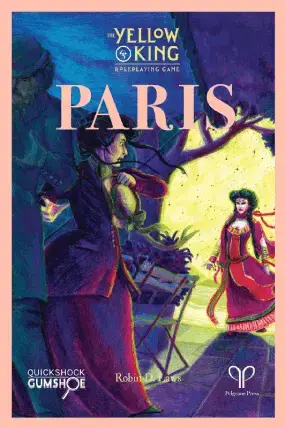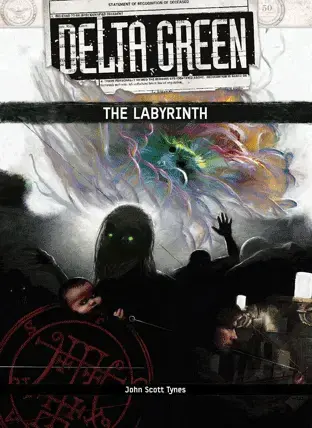Tabletop Gaming
I played several games with a group of friends and we now have biweekly meetups to play a few rounds of Blood on the Clocktower. I was wondering if anyone else played it?
It's a social deduction game with the same idea as Mafia/Werewolf or Town of Salem where all the players are either on the good team or the evil team. The good team has to find who's on the evil team by sharing information. The evil team consists of one Demon and at least one Minion (depending on player count). The goal is for the good team to find and execute the Demon, while the evil team has to try to convince the town that they're good.
What I like about it is that each player has their own unique role. There are a bunch of different roles with different abilities, whether it be getting information or having the ability to do something. There are even roles for different demons and minions with their own abilities. You're also allowed to go into private discussions, and dead players still play a part in the game. Dead players can still talk to other players and they have a dead vote that they can use to vote someone else (although if you use your dead vote, you lose it). I also like that you can talk during the night, although we have a house rule that you're not allowed to talk about the game during the night out loud (if we're playing online we're allowed to use text chat).
There's also so many custom scripts that combine all sorts of roles, including experimental ones that are released every month but aren't in the official scripts.
Does anyone else enjoy Blood on the Clocktower?
I have been trying to get my partner into Pathfinder 2nd edition, and they do seem taken with it, however he's been having some issues lately with PF2E. Notably, online. The more he gets into PF2E, the more hate he sees for 5E. He's been playing 5E for years now and has invested a lot of time and love into the game, and to see it bad-mouthed online by a ton of people either because they think PF2E is better, or they don't like the system, or because of the company that manages it, has been disheartening to him as of late.
He told me today that he might just stop playing altogether after he's finished with his games because of the hate he's been seeing online, and I would hate for him to drop something he loves and has invested so much time into because of some online hate comments coming from another community in an act of internet tribalism.
I tried telling him that people disliked D&D4E when it came out for various reasons, yet people still play it today, and that when I started playing 5E, 4E had the reputation of being the game that everyone hates, but he's still focused on how people will bad-mouth 5E when they really have no need to. One example I can remember him seeing (and before I bring it up, I understand Reddit's culture, but the large amount of forum posts are going to be on Reddit, especially for a large and insular hobby like TTRPGs) was on a Reddit thread of someone asking what an analogous spell or ability would be to some spell in 5E and one person commented something to the effect of "well, you could try using this spell/ability, but you won't get the same effect as you would in 5E because 5E is just for auto-win stuff that doesn't have the player trying hard" (moderately paraphrasing, but I think my point is conveyed well here).
Personally, I like PF2E over 5E, but I'll still play both, mostly because most people will play 5E and not want to try and learn a new system, especially if it's one that has a reputation of having exponentially more rules than the one they already know and are comfortable with. Does anyone have any tips for how I can help my partner here?
- docs.google.com Day Zero - Zombie TTRPG
Day Zero A Zombie TTRPG (Image generated with Stable Diffusion) Foreword Day Zero is a D20 based TTRPG inspired by DND. It is in a playable state and accounts for most situations. The main feature I’ve added is “Mood” which can boost or hinder your checks. Also, stat and skill modifiers aren’t ...

Hello, I've been working on this TTRPG since I played my first TTRPG years ago. My goal for it is to be fun with some resource management, very sandboxy, and accessible to new TTRPG players.
I have a 1-shot prepared, but havent had a chance to run it yet. I would also like to start a campaign that lasts a while where we can develop the rules together through playtesting.
cross-posted from: https://lemm.ee/post/33546668
> I have created a free tool for players to roll dice, saving the history of all rolls, and requiring no login: simply pass a unique URL back and forth between players as rolls are made. > > You can start with the empty page here, or take a look at the code to make it yourself (it's simple HTML with a tiny bit of JavaScript).
I invite You to read and discuss. And if You have Your own "twisted gods", please share them.
In RPG and fantasy, we are often faced with a situation where the existence of gods is an empirically confirmed fact, rather than a matter of belief. Two extremes can be distinguished in the representation of these entities (note – I do not claim that all creation adopts one of these two extreme points of view). On the one hand – the trend adapted by e.g. most of the settings for D&D – gods are personification of certain values professed by people, not infrequently they are even „born” from the faith of mortals or at least derive power from it/are shaped by it – gods described as „good” are simply good in the conventional sense of the word, they sincerely care about their followers and you know what to expect from them. On the other side, we have motifs that can be considered taken from Lovecraft’s Cthulhu mythology – the gods are incomprehensible, distant beings, completely unconcerned with human worldviews and so-called „good and evil”, mostly indifferent to humanity (and if by chance their paths intersect with humanit’s ones, humanity is screwed) – at the same time, it is not uncommon for most mortals to be unaware of their existence, instead worshipping imaginary, more anthropomorphic deities tailored to their emotional needs.
In this article, I wanted to present deities standing somewhere in the middle – entities whose goals, yes, are not fully understood by mortals, but nevertheless close enough to human morality that worshippers can find some commonality (real or imaginary) with their patrons. These gods are usually directly interested in some way in the lives of their worshipers – although not necessarily in the way those worshipers would like. At the same time, I wanted each description to contain a hook, an important point where the devotees’ understanding of the deity diverges from its real nature – and whose discovery could be a significant twist.
- Mother of Peace
The Religion of the Mother of Peace, or the Cult of Harmony, is a strictly pacifist religion. Strictly and absolutely. No violence is allowed, ever, anywhere, in any situation. If you see a psychopath murdering children with an axe, you have no right to use force to prevent him from doing so. You cannot stun him, disarm him, knock him over, or even grab his arm. At most, you can ask him to stop, try to distract him, or stand up to the blow to give the children a chance to escape. Why do people follow such religion? First, the philosophy appeals to some – in the real world, Gandhi said something like „applying the eye-for-an-eye principle will make everyone blind.” – Followers of Harmony believe that violence begets violence, while peace begets peace. If they consistently turn the other cheek and don’t resist evil, they will stop winding up the spiral of violence and constant revenge and eventually evil will disappear naturally. Second – following the path of Harmony brings concrete benefits. Holy priests, who have long been non-violent, receive healing powers from the Mother of Peace – but they only work on other followers, so the policy of „I do violence, and the pacifist priest of Harmony heals me” is impossible. To use healing, you need to sincerely renounce violence – which, on the one hand, reduces your chances of survival in an encounter with hostile beings, on the other – if you come out of it alive, all your wounds will be healed, plus you gain protection from natural diseases and other threats. Third – the priests of Harmony preach that those who live and die, observing the principle of non-violence, will be taken into the bosom of the Mother of Peace after death, who will give them happiness incomparable to earthly suffering – so it is „profitable” to trade your life in exchange for heavenly pleasures.
The religion of the Mother of Peace may be perceived differently in society. It is possible that the authorities are avtively against it – it makes the subjects unwilling to fight, which reflects on the combat power of the state. Or perhaps they support it, seeing it as a tool to pacify potential rebels? Ordinary people may regard the Children of Peace as annoying lunatics – or treat them with deep respect. Even if healing powers may not work on „infidels,” after all, the Children may be able to help them in other ways – such as using conventional medicine (while remarking „Join us and you’ll see real miracles!”).
Well, what is the catch? Yes, the Mother of Peace actually exists. But her goal is by no means to create a utopia where people can live in happiness and peace. Her goal is to weaken the population of a given world/planet/country. When a sufficient portion of the population is transformed into followers of Harmony, for whom the use of violence – even for defense – is unthinkable, and even if it were thinkable, they would became too weak to use it, the time for reaping comes. The True Children of the Mother, hordes of bloodthirsty, voracious creatures, come out to prey and consume the pacified people. The devoured people continue to make prayers to the Mother, who continues to appear from time to time, assuring her followers that this is the final test and whoever perseveres without putting up a fight against the monstrous invaders will be saved.
During the course of the game, players may encounter followers of Harmony. It would be good for the GM to present them as something more than detached hippies, to make the players start to wonder if they are right. Maybe they’ll come across a reformed bad guy – e.g., a psychopathic follower of the god of murder who massacred a village of Harmonious heretics, but their indomitable will and serenity in the face of death made him convert and join them? Or more life-like – a husband who stopped beating his wife and children and is now an exemplary head of the family? Players can act as defenders of persecuted Harmonists (although this will involve some ambiguity – „Harmonists are decent people, but without people like us, who are not afraid to get their hands dirty, thay would survive”). They can have discussions with the priests about the legitimacy of pacifism. Maybe one of the player characters will start thinking about becoming a Harmonist after his career as an adventurer ends? The more sympathetic players become to the cult of Harmony, the more shocked they will be to discover indications that the Mother of Peace may be a much darker entity than it appears. At first, they may trivialize rumors like „Harmonists are actually a fifth column preparing the world for an invasion by dark forces!” as typical denigration of the new religion by the old clerical establishment. But as time goes by, the evidence will become stronger and stronger… Until finally there will be an invasion of the True Children that the players will have to face. Or maybe they will have the chance to prevent it, and will face the dilemma „Whether to believe the critics of the Harmonists and obstruct the great ritual, which, according to the Harmonists, is supposed to help bring universal happiness, but in fact open the gates of the dark dimensions…. Given that in order to do so, we will have to massacre a crowd of unarmed civilians, including women and children?”
The Mother of Peace is portrayed by her followers as a goddess with, one can easily guess, maternal qualities. Perhaps even as a pregnant woman? This is a play on the ambiguous nature of this entity – the presumed spiritual mother-protector of the followers of Harmony, and the actual fecundator of the swarm that will consume them. Players may come across disturbing references to „the coming of the True Mother’s Children” in sermons and hymns – priests may (sincerely or not) explain that it’s such a metaphor, that it’s about the era when people truly dedicated to peace will come.
- Enemy of Superstition, Destroyer of Magic, Defender of Normalcy
There are many arguments that are made against magic. It is source of obscurantism, superstition and charlatanism, a way to fool people. It violates the natural order of things. It is the work of demons, leading to possession or by destroying the veil of the worlds to demonic invasion. It is the theft of the power due to the gods, a manifestation of human pride. It distracts people from giving honor due to these gods. It brings madness, sucks the life out of the environment, causes the risk of explosions or other side effects. Leads to inequality, as mages can exalt themselves over ordinary people. Or something.
Depending on the setting, each of these accusations may or may not be true. But that doesn’t stop the Defender cult from preaching them. Inquisitors and witch hunters roam the world, collecting magical artifacts, books and even arresting anyone who manifests magical talents. No, they don’t burn them at the stake. All items and people associated with magic go to the Bottomless Wells located in temples – supposedly the only way to effectively annihilate them. Importantly, the hunters are ordered to take mages alive if possible and throw them into the wells – supposedly a mage eliminated in the wrong way turns into a wraith, or something like that. Inquisitors are aided in this work by the magic-blocking powers provided by the Defender.
Witch hunters can be treated by the people as terrifying villains – or as heroes. The reason for the latter attitude is not necessarily solely propaganda and „fear of otherness.” It is possible that the land has actually suffered a lot at the hands of mages – perhaps it has just liberated itself from the rule of an evil sorcerer and his disciples, or it is fighting a fierce battle against a nation that uses magic in a fierce way. It would be worthwhile for players to see some of the negative effects of magic use with their own eyes, so that at the very least they would develop doubts about whether the Defender’s followers are wrong.
What is the truth? It’s easy to guess that the Defender is not concerned with defending the innocent from witchcraft. But neither is he driven by any other selfish yet high-minded motivations along the lines of „magic takes the glory away from the gods.” The truth is that for the „Defender,” magic is just darn tasty. Bottomless Wells are portals leading directly to his insatiable maw. It’s possible that the founder of the Inquisition managed by some miracle to communicate with this entity and make a pact „I will provide you with food, you will lend me and my disciples your anti-magic powers, which you use to safely digest objects radiating magic – and we will use them to incapacitate mages.”
What will happen when the players reveal the truth about the Defender? Maybe the inquisitors will be furious that their holy crusade turned out to be nothing more than feeding an inter-dimensional monster, they will turn their backs on their god, to which he will react with rage (not because of his violated dignity or some other irrelevant value, but because of the vision of being cut off from a steady supply of grub), through one of the wells he will enter the world and the players, along with the inquisitors, will have to face him? Or maybe the inquisitors will react with a shrug of the shoulders and the statement „So what if the Defender is not a noble god, but a voracious monster. Magic is still a threat, and he is the best means to eliminate it.” Perhaps, using the method of the cobbler Skuba (Polish legend), players will toss a special object emanating „toxic”‚ magic into one of the Wells, which will poison the Defender?
- Truthsayer
God of the truth, the whole truth and nothing but the truth. People swear by his name. He is also worshipped as the god of justice and knowledge, so judges and scholars worship him. Lying brings his curse.
The Truthsayer doesn’t lie about himself – in fact, he wouldn’t be able to even if he wanted to (and he definitely doesn’t want to). The problem is that the people themselves have sung too much about him. As I pointed out above – he is the god of truth and ONLY truth. Justice does not matter to him, it is a totally foreign concept to him…. If he helps the investigators uncover the machinations of the villains, it is only so that the truth will come out, but he does not care whether the result will be the administration of justice. He might as well help the villains discover the heroes’ forays and subterfuges. As for acquiring knowledge – yes, he assists scholars in their research, in order to reveal the truth. However, if a scholar spins unsubstantiated speculations and hypotheses (which happen to be contrary to the truth), even in good faith – he draws the wrath of the Truthsayer. Simply put, untruths make the Truthsayer suffer. This applies to any untruth. Also fantasy. If the Truthsayer’s followers perform a ritual to increase his presence in the material world, they will bring a terrible calamity. From now on, the curse will fall on actors and poets, on anyone who utters a harmless lie like „You don’t look fat in that clothes,” „I’m not mad at you,” or „I’m on my way out,” as well as anyone who uses deception (no, the Truthsayer doesn’t care about the nobility of the cause – if you put on camouflage to sneak under the headquarters of the bad guys and rescue their innocent hostages, you are a hideous LIAR and deserve to be punished). Bah, people in ordinary conversations must be careful not to use metaphors and phraseological compounds. A Truthsayer may even go so far as to seek to eliminate words like „nice,” „tasty” or „good” – after all, they are subjective, and what is not objective truth, is a LIE.
Good player characters can help prepare a ritual to summon the avatar of the Truthsayer – after all, „God of Truth” sounds like a decidedly good dude, right? At some stage, they may realize that the world of absolute truth will be something terrible (maybe some conversation with a philosopher?) and try to torpedo the ritual. Maybe they will be able to accomplish this in advance… Or maybe the avatar will already begin to pass into our world? Then they will succeed in playing him off by pointing out the paradox – people summoned him because they believed he was the avatar of goodness, justice and knowledge – if he exploits this ignorance of theirs, he will benefit from lying, and this would be unacceptable. Or a character with an exceptionally high bluffing skill or the like might try to spew a tale so full of lies and absurdities that the avatar of Truth will go berserk just from listening – but a half-hearted success will only enrage him!
For the Truthsayer, as an antithesis, I would see a god of lies and fantasy – not the typical sinister „Prince of Lies” in the style of the Christian Satan, or some malicious trickster, but a deity whose motto is „Such is the world! A wicked world! Why is there no other world?” (B. Lesmian) or „Be guided in life by such foma (harmless lying) as will give you courage, goodness, health and happiness” (K. Vonnegut), who lies not for some selfish purposes, but because he firmly believes that lying IS GOOD. The real world is cruel and unfair, lying helps to endure it and achieve at least a little happiness – through escapist fantasies, small daily lies „From tomorrow I will take charge of myself and achieve something!” „You look nice”, „Don’t worry, you’re not a failure at all” through big lies like „Good is always rewarded and evil is punished”. In this arrangement, both the god of lies and the god of truth would be morally neutral in practice (both can assist followers in certain situations, but at the same time pose a danger – the god of truth mercilessly punishes anything that is not the absolute truth, the god of lies can entangle you in a web of delusion) – but in theory, it is the liar who is driven by more altruistic motivations and loves mortals.
- Prince of Blades, Lord of Sharp Angles and Edges
Centuries ago, the Prince of Blades was worshipped as a deity of war, or even slaughter. Legends say that he made the claws of his worshippers – and even their teeth and nails – exceptionally sharp and dangerous to enemies. And the legend is true – albeit the Prince was never a god of war. He is the personification – or perhaps the source? – of all sharpness. He doesn’t care about crippling anyone, although that’s mostly a side effect, he just wants things to be sharp. Or rather – in passing, by his very existence, he makes them so?
Let’s say there is a place where strange phenomena occur. Babies are born with long and exceptionally sharp claws and fangs. Swords and axes made by local blacksmiths are famous for their exceptional sharpness (maybe the player characters just came here to get their hands on them?). Why go. There is a temple of the Prince underground, and its influence radiates to the surface. Cultists come to the town to unearth it – they believe in the Prince in his aspect of the god of war and believe that this will help them triumph over their enemies. When they realize their goal, they are met with a surprise. The cultists are transformed into living avatars of sharpness. Invisible blades cut them so as to eliminate all contortions (a head clipped to a cube is not a pleasant sight), their hands turn into scythes, and in their brains all thought of their own is replaced by a single imperative – cut! What’s more, the Prince’s influence is more and more visible in the neighborhood – everything becomes sharper. The most visible effect from a mechanical point of view is that all weapons (edged weapons to a slightly lesser extent, but also) deal more damage. But as the influence increases, even rubbing clothes against skin starts to be painful, then every touch hurts, until finally the very movements of air cut the skin. If players don’t close the temple, the effects can be really nasty. It is possible that earlier players encountered a strange artifact – a sponge ball. If they didn’t get rid of it, it will turn out to be a „statue” of Our Soft and Oblique Lady, the opposite of the Prince, which what him will mitigate the effects of opening the temple. The battle will take place not between good and evil, order and chaos, or other abstract constructs, but between Sharpness and Softness.
- Mistress of Natural Instinct
A goddess of wildlife, her followers preach the need to return to a life in harmony with nature and reject the defiling influence of civilization. Oh, it would seem – another „mother Gaia” with a pseudo-ecological cult. The thing is, the Lady is not at all measured by the fact that people are poisoning rivers and cutting down forests, as her followers believe. What she doesn’t like is that they are rational. Reason, consciousness, morality, are evolutionary dead ends. They only multiply pain and suffering. Do animals – much less plants – waste time and resources on some foolishness like art? Do they risk their lives and the lives of others for abstracts like honor? Do they suffer from offended dignity, boredom or lack of meaning in life? People simply combine too much to be happy. The return to nature is not primarily about rejecting technology (although that will probably be a side effect of it), but liberating people from the unnecessary baggage of excess thoughts. Let them become like animals – free, innocent and amoral. This is the purpose of the Lady, which is not grasped (possibly except by the high priests) by her followers. Yes, during ecstatic rituals some of them fall into a trance, during which they walk on all fours, howl and growl. And the priests are able to bring this trance on their enemies… But are the followers ready to accept the truth that, according to the will of their mistress, this is how life should be, forever?
Rest of the book is avalaible for free here: https://adeptus7.itch.io/twisted-gods
In most countries it will be probably DnD. But in mine (Poland) for many years Warhammer Fantasy was THE RPG. Nowadays it is more equal. Other popular games are Call of Cthulhu and World of Darkness line. I see that recently Shadows of the Demon Lord gains popularity. There is also quite alive indie scene. We have some bigger, commercial Polish RPGs (like Monastyr, Neuroshima, Wolsung), but nowadays they are rather not played.

Star Wars: Unlimited is filling the MtG hole after I got fed up with their mismanagement of the game.
Hello, im a new GM and im looking for places to get digital battlemaps. Im looking for ones that are compatible with roll20.
- science.nasa.gov The Lost Universe - NASA Science
Download NASA's tabletop role-playing game adventure, The Lost Universe.

- boardgamegeek.com Any news on that "sequel" ? - Solved: publisher answered ! | Brass: Birmingham
in an old thread from December 2021 Gavan Brown teased a sequel: https://boardgamegeek.com/thread/2772848/any-plans-martin-wallaceroxley-create-different-ve question to team roxley: after two years, is there anything you can share with the community yet?
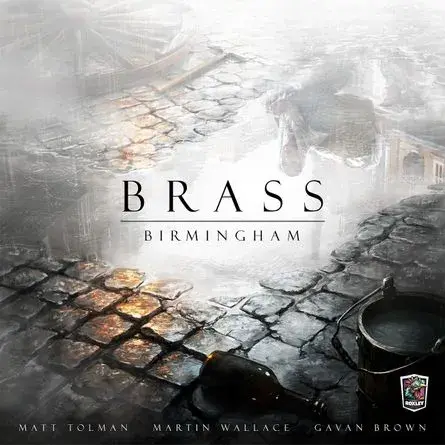
> "We are not ready to share quite yet, but our next Brass sequel is our current top priority for development in 2024. It is slated to be our next Kickstarter, which we plan to launch Q4 2024. The exact launch date will depend on rate of development and testing. Thanks for your patience!" - Gavan Brown
the next Brass sequel is still happening, planned to launch on Kickstarter in Q4 2024 earliest.
Other Unanswered Questions at time of posting
- will Martin Wallace be involved?
- will it have a solo mode?
- will it be like the 2-player fan made Brass variant Brass: Amsterdam?
- which city would it be?
- www.polygon.com Pirated copies of board game Kelp went up for sale before the Kickstarter even ended
Fake tabletop products are a problem, and it’s only getting worse
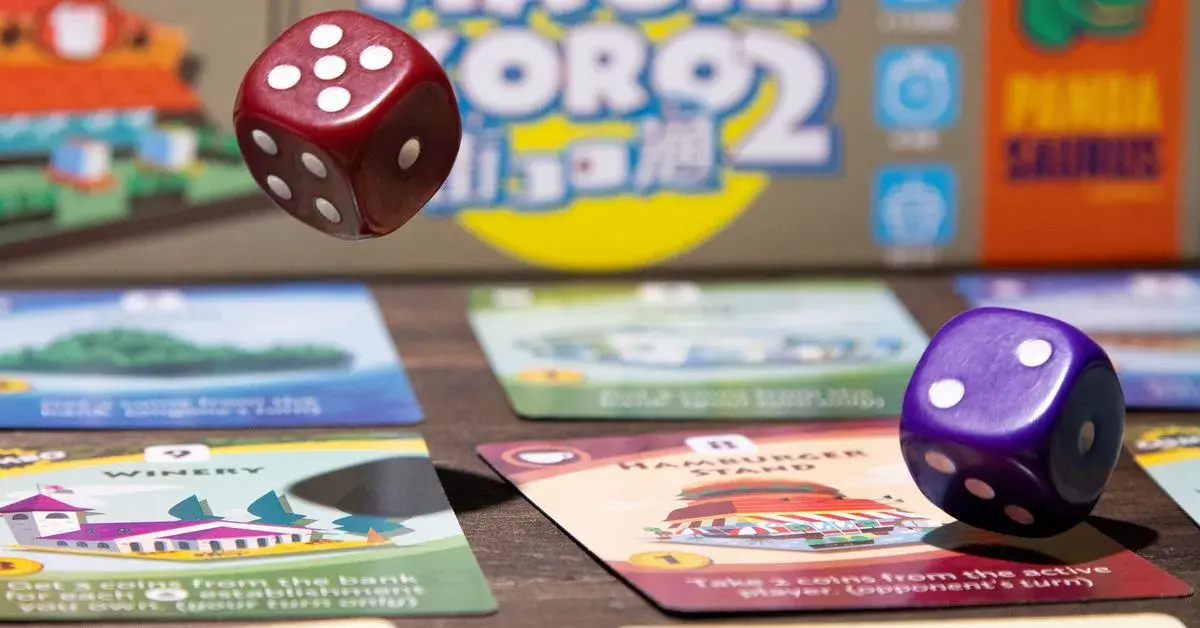
- www.newyorker.com The Personal, Political Art of Board-Game Design
What can board games say that other art forms can’t?

Mirror, in case you hit a paywall: https://archive.is/iCYt4

I've played D&D pretty casually from time to time, but always as a player and usually just short one shots and not big campaigns.
This year I started feeling the urge to play in a big campaign, and some of my friends were showing interest. I decided why not try my hand at DMing! I went all in, I bought 6 books (DMG, PHG, Xanthars guide, tashas, MM, and MotM) a ton of paint supplies, and some tiles/maps.
And I'm glad I did! We've had four sessions so far and it's going great. We are starting on the Lost Mine of Phandelver campaign, and afterwards we will be moving into homebrew, eventually reaching level 12+. I have already started changing a few things from LMoP to fit the homebrew campaign I am planning where the BBeG will be Atropus and its chosen Warlock who is trying to attract the elder evil to Toril.
I didn't have any experience running a campaign, or even painting, but there are so many useful resources on youtube that I feel confident I've got a handle on things!
If anyone has any tips or pointers for a first time DM I'd love to hear them! I am always willing to learn.
If anyone wants to see more of the figures I've painted, heres a couple of pics https://imgur.com/a/1SMF4jr?
- sorcerytcg.com Sorcery: Contested Realm
An "old school" fantasy card game for players with a rich imagination, tactical nerve and an appreciation for hand-painted art.
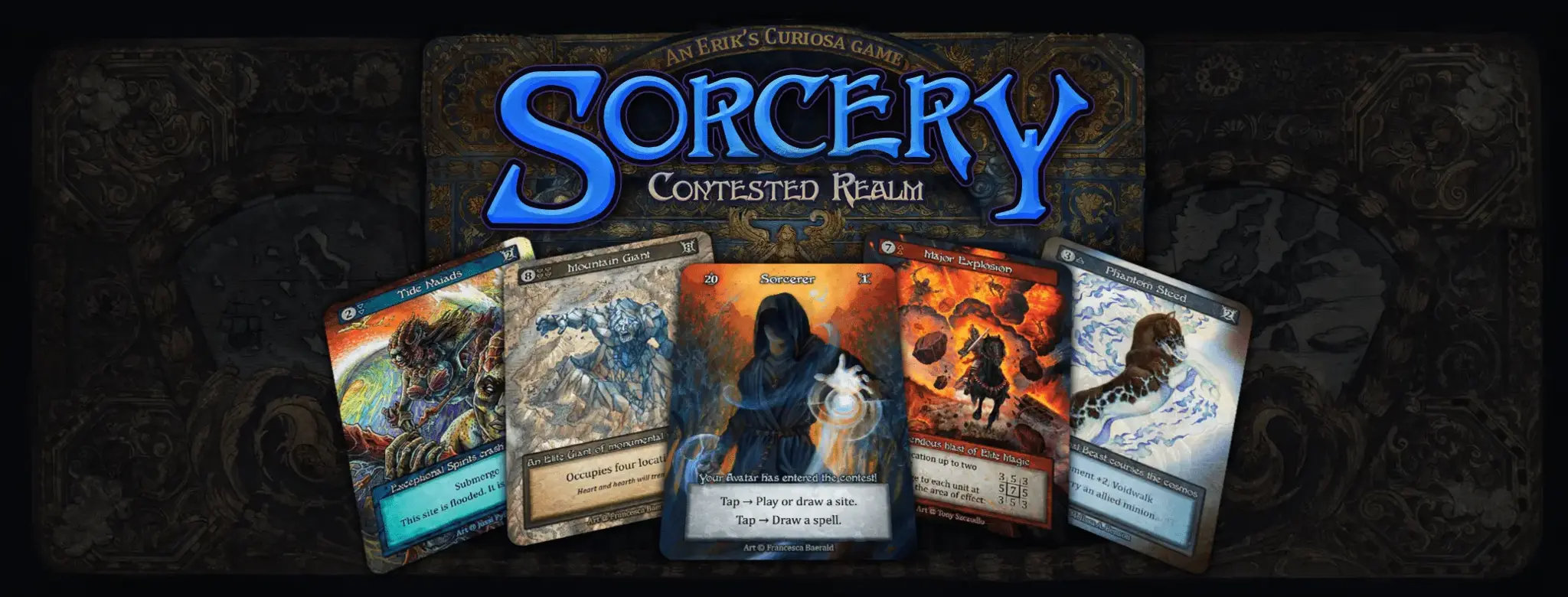
Interesting new TCG, the art seems really nice.
cross-posted from: https://beehaw.org/post/9721677
> I have a player in my newly starting Abomination Vaults campaign that wanted the Cursed background. As part of that, I asked them what kind of curse they would have, and they came up with/saw an idea for their curse that they liked and suggested. > > Their initial suggestion would be that their PC would forever be unable to open doors, which I liked the flavor of, but based on the wording of the Cursed background, was worried that it would be too much of an ever-present mechanical obstacle. > Note: This player is new to TTRPGs and PF2e, so may not understand the ramifications of mechanical limitations. > > To try and match what they suggested, but expand on the curse a little bit, I suggested that they perhaps are occasionally compelled to close doors on themselves instead, which the player liked. > > To make it more defined and consistent, I whipped together this curse, and would like feedback on it's implementation and overall feel. > > > >Curse: > >Caspian once insulted a fey creature by enclosing it within a room, in an attempt to trap it. The fey then cursed Caspian to close doors on themselves under stressful circumstances. > > > >When Caspian approaches or crosses a doorway under a stressful environment (this may be during exploration of a dungeon or during combat), a will save may be requested to be rolled, with a DC for Caspian's level. (Level 1 = DC 15) This may occur up to 3 times per day. [Should this be more limited?] > > > >[Daily prep: does it reset difficulty? Maybe a refocus type activity to reset difficulty or prevent the will saves for a period?] > > > >Outcomes: > > > >Critical Success: Caspian overcomes the desire to close the door, and no new will saves must be made for the remainder of the day > > > >Success: Caspian overcomes the desire to close the door, but the DC for the next will save is increased by one difficulty level. [maybe should be a +2 each time?] > > > >Failure: Caspian is unable to resist, and must spend an action [should this be a free action only for curse? opening doors takes actions too] to close the door in front of, or behind them, [figure out in what scenarios they close it before/after crossing] The DC difficulty modifier is then reset. > > > >Critical Failure: As failure, but Caspian is unable to open the door without attempting a new will save. The DC of this will save is the basic DC difficulty, and a failure does not increase the DC difficulty. > > My current thoughts for targeted input are denoted in [square brackets], but I'd like some general feedback as well. My intention is that this is an obstacle that may end up in a more dangerous circumstance, but isn't guaranteed to get them in trouble all the time. > > The question about the refocus activity would be a way to prepare for the possibility of the curse, like when the players know they are about to enter a dangerous area, similar to pre-buffing.
Title
Hi all, I'm interested in some advice from folks used to facilitating board games.
So I acquired a copy of Cosmic Encounter and its Incursion expansion earlier this year. Tomorrow I'm having some folks over for dinner and board gaming so I was excited to learn the rules and see what this game was all about. I heard it's really good!
For those unaware, Cosmic Encounter is a space strategy game with a ton of potential for goofy interactions. When players have an encounter, they can choose to play cards indicating whether they want to fight or negotiate. If two players play a negotiate card, then they have a chance to exchange territory and resources.
Today I realized a potential issue in the form of a 1-minute timer during the Negotiation phase. Apparently, if two players end up in a Negotiation, they have one minute to make a deal. If they can't conclude the deal in one minute the negotiation "breaks down" and both players end up losing three of their ships.
My players love board games but I can think of at least three of them who won't like playing with a timer and will probably suggest we ignore it.
I don't want to alienate my players and I picked this because it seemed like a fun and fairly accessible experience so I would feel bad for insisting on something that made them uncomfortable.
On the other hand, I'm concerned that analysis paralysis will make the game take forever when players can take as long as they want to make deals. I've played Bullet with the same people and, since we have agreed not to use timers in that game, it can take a long time for players to finish placing their last pieces, leading to 1-2 hour games (when the playtime estimate is 15 minutes).
So I want to know what you think, especially if you have experience with Cosmic Encounter or introducing new games to people. Can we still get a good experience out of the game without using timers for a first time run? Should I recommend a compromise such as more time and/or removing the ship destruction punishment (choosing, instead, to just cancel the deal if it takes too long)?
Edit: thanks for your suggestions! I think I know how to approach this when we do play the game. Sadly we didn't end up playing it last night 🤷
- emilsgameroom.com Dungeoneering, a TTRPG review - Emil's Game Room
Dungeoneering by Grinning Rat Publications is an entertaining tabletop role-playing game that offers simple mechanics and friendly advice for new game masters. It is particularly suitable for those interested in the Old School Renaissance. Despite being short, the game provides a collection of tools...

So, I've been having a blast running short campaigns of this game and felt it was worth sharing with the community. While my players and I are newcomers to the OSR scene, we've found invaluable guidance in this particular book. It's packed with great advice on put together and run a rules-light, dungeon-crawling adventure. I personally appreciated the focus on being a fun playable game. If you're seeking a lighthearted 3-4 session break or aiming to introduce friends to an old school gaming experience, this book is an excellent starting point. It's easy to teach to your 5e friends and , if they are anything like my mine, they will love playing it.
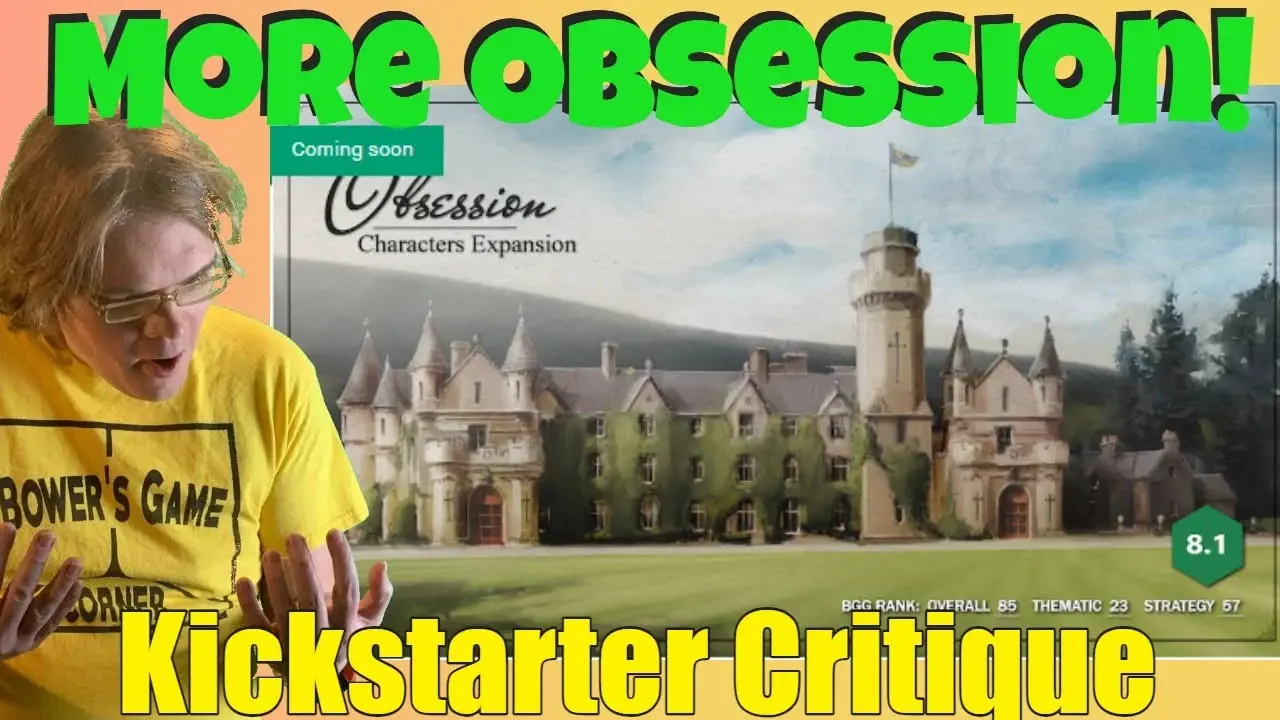
YouTube Video
Click to view this content.
- Obsession (2.1e) is a 1~4 player, 90mins, competitive, worker placement game (bgg link)
- player play as mid 19th century Victorian upper class families
- each family (player) competing to better their social position, reputation and family fortune by building new rooms/venues and hosting successful social events with the help of their servants staff (worker meeples) they hire along the game
- there is also a goal of attracting the most elligible gentleman and lady in the county to marry into their family for more prestige
- its like Downton Abbey (TV series) the game
- playthroughs and tutorials: JonGetsGames, Heavy Cardboard, Rahdo
the kickstarter (~$50, 8 days left)
- does not contain the base game. only the latest expansion and optional gold coins
- this is the 3rd expansion and supposedly last (source: trust me bro)
- will be available retail, no kickstarter exclusives it seems
besides having been interested in the game and theme for a long time, i thought the video was an interesting watch going over the issues with how boardgame kickstarters are these days
On Sunday, I had some friends over, and we played Heat. It was my first time with the game, and I found it to be a lot of fun.
There's just enough strategy in managing your car's "heat" level. Take on too much, and you'll stall out. Don't take enough risk, and the other players will pull ahead. I accurately captured the tension of racing video games. "Do I floor it and come into the turn quickly, risking spinning out? Or do I brake and take it safely but lose my place?"
Question as in title.
- emilsgameroom.com Give Wish to your low-level party - Emil's Game Room
An analysis of the wish spell for Dungeons and Dragons players. It includes advice for DMs about why to use or not use it.

Hi friends! I'm new to Beehaw (this is actually my first post.)
I thought I'd share something I wrote about a year ago but I'm still proud of. Giving wish to your low level Dungeons and Dragons party then ruling to let it undue one major mistake prevents worst case scenarios while still letting players feel like they are in control. Plus, the obvious concerns you are thinking of right now aren't as bad as they seem!
>What's In The Box? > >This Kickstarter is for a boxed starter set which takes your 5E core rulebooks and 'upgrades' them by introducing you to some of the new rules in Level Up. Unlike the standalone Level Up hardcover core rules, this starter set assumes you know how to play 5E, or have the 5E rules, and we just show you the new stuff!
>What Is Level Up? > >Level Up: Advanced 5th Edition (A5E) launched in 2021 and is a standalone game which enhances the 5E ruleset which you know and love. If you love 5E but would like a little more depth to the rules, Level Up is the new game for you! > >After two years of extensive public playtests and surveys involving thousands of players, and input from our active community, we completely overhauled the 5E game system. From redesigned classes to a full exploration pillar, we revisited every aspect of the game to present this new standalone game, backwards compatible with the 5th Edition core rules.
- https:// twitter.com /WorkersUnitedNY/status/1706720068925591879
> Welcome to the movement Hex & Co!! > > Workers at the three-location board game cafe chain, including the largest board game cafe in Manhattan, confronted management today to demand union recognition. > > They would be the first board game cafe in NYC to unionize. Workers are demanding a liveable wage, adequate staffing and a transparent path to promotion. > > The bargaining unit will include approximately 75 employees including baristas, bartenders, retail workers, afterschool program workers and 'dungeon masters' (people who run the games!) 🐉🐉
- www.thegamecrafter.com 3D Tiles for Food Chain Magnate - Full Set
Standee tiles for restaurants, houses, most marketing, drink locations, etc. including Ketchup exp
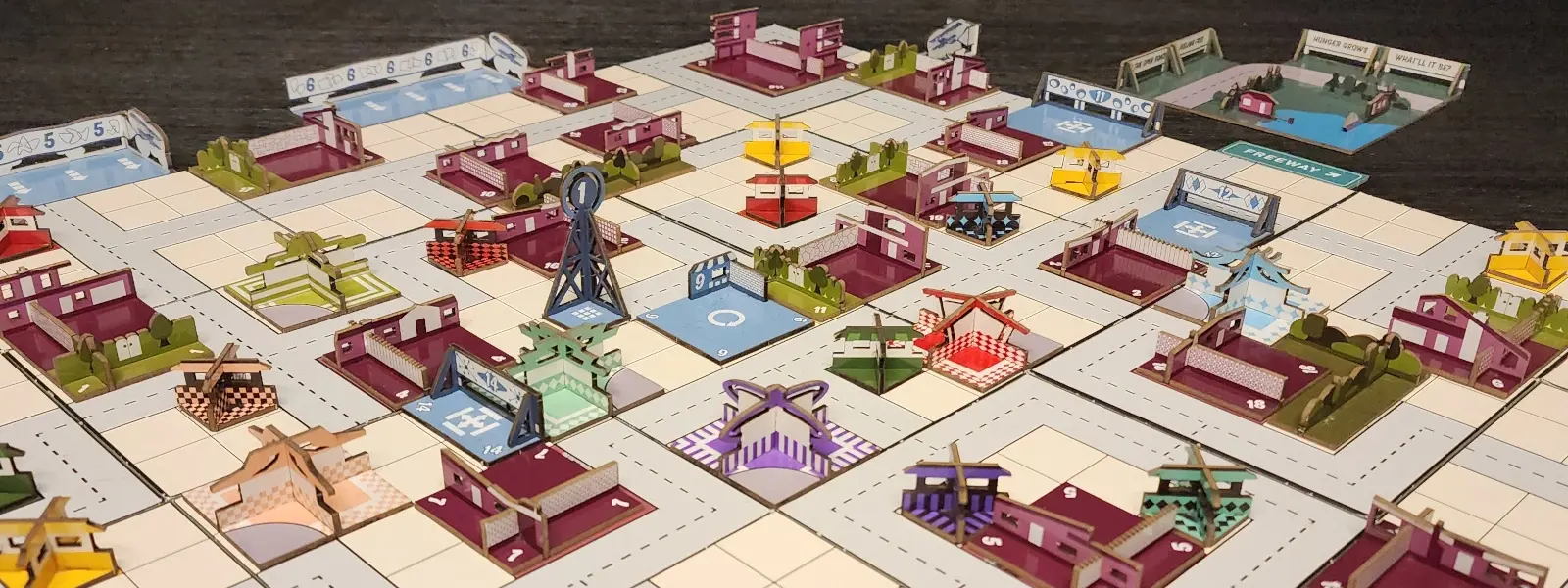
recently, it was announced one-time only deluxified version of Food Chain Magnate (FCM) would be held on Gamefound (campaign not launched yet) featuring a different art style than the infamous Spotter Spellen game known for its retro yet functional graphic design which some felt was so bad refused to play it despite it receiving critical acclaim
- the deluxe by Lucky Duck Games on Gamefound will run concurrently with sales of the original on Splotter (prices are predicted to cost no less than the original)
- there are plans to introduce deluxe version of the FCM expansion
- there will not be an upgrade pack for owners of the original version of FCM
- English only deluxe, because of distribution rights
- this isnt the first time a Splotter game received an art refresh, Bus received an English only 20th anniversary in 2019. with another title, Ur: 1830 BC getting a re-release pending a popularity vote
meanwhile unrelatedly, a fan-made laser-cut 3D standee tiles was also released on Game Crafters earlier this month for those wanting to deluxify their copy while retaining the original's unique aesthetic appeal
question for all you Beeple and Fediversers - im curious which style of deluxe do you prefer if any? the Lucky Duck Games deluxe, or the fan-made laser-cut 3D standee tiles
- www.dicebreaker.com Cthulhu: Death May Die universe to receive new entry in the form of a re-imagining of Neil Gaiman-inspired board game
The Cthulhu: Death May Die board game universe is getting a new entry in the form of a remake/revision of another title.

- re-imagined and re-titled as Cthulhu Dark Providence set in the Cthulhu Death May Die universe
- A Study in Emerald (2013) was among the early wave of deck builders following Dominion (2008), but featured a board in addition to the card mechanic
- in comparison Clank! came around in 2016, Trains (2012), A Few Acres of Snow (2011), Tyrants of Underdark (2016)
- the 2nd edition changed quite a few things from the 1st edition
- based on a short story of the same name by Neil Gaiman bringing Sherlock Holmes and Cthulhu creatures together
- the new game by CMON will be reportedly tweaked to include a 2 player and solo mode
- the original was a 3~5 player game, featuring hidden role mechanic as players side with or against the Old Ones
- original YKRPG kickstarter
- this is a tabletop role playing game in the Lovecraft mythos
- runs on the GUMSHOE system, that is designed around investigations
- 20 days left,
- $17.95 for the YKRPG core book + 6 sound tracks
- $28.20 for the full bundle of:
- 1 YKRPG core book
- 1 YKRPG city guide handouts
- 1 annotated version of the original public domain book "The King in Yellow"
- 2 novels inspired by the "The King in Yellow"
- 6 sound tracks inspired by the "The King in Yellow"
- na.finalfantasyxiv.com Announcing the FINAL FANTASY XIV TTRPG (Tabletop Role-Playing Game)! | FINAL FANTASY XIV, The Lodestone
Announcing the FINAL FANTASY XIV TTRPG (Tabletop Role-Playing Game)!

cross-posted from: https://lemmy.ca/post/5733635
> ghostarchive > > >In commemoration of A Realm Reborn’s 10th anniversary, we are excited to announce the FINAL FANTASY XIV TTRPG (tabletop role-playing game), the first of its genre to be officially released by the FINAL FANTASY series! > > > >Tabletop RPGs are games in which a group of participants create and act as their own character in a dynamic narrative. Each decision can lead to all sorts of unpredictable moments, as the outcomes of players’ choices are determined by a roll of the dice! > > > >Newcomers will be well-equipped with this starter set, which includes scenarios supervised by the FFXIV Development team and original dice, all carefully crafted to provide an engaging experience for fans of FFXIV and tabletop RPGs. > > > >! > > > >Embark on your own original adventures in familiar locales and dungeons to rediscover FFXIV’s FATEs, monsters, and NPCs in tabletop form! > > > >Visit the FINAL FANTASY XIV TTRPG teaser site^[https://www.square-enix-shop.com/ffxivttrpg/en/ (archive: https://ghostarchive.org/archive/ja3ZN)] for product details and future updates. >
- www.polygon.com Terraforming Mars team defends AI use as Kickstarter hits $1.3 million
‘It’s too powerful a technology’

- popcar.bearblog.dev I made a Solitaire game called Red Queen's Dungeon
Table of Contents Intro Setting up Draw Phase Combat Phase Defeating an enemy Combining cards Running away Final battle Game end / scoring Closing thought...
Curious to hear any feedback if anyone's interested in these games.
Delta Green is a tabletop rpg of modern times where government agents have to deal with the Cthulhu mythos and conspiracies
the more expensive "Handler Megacollection" level-up offer, among other books/campaign also comes with the 2021 Kickstarter's update to the original rpg source book "The Conspiracy".
Long time 5e DM, switched to 2e about 6 months ago and have been running an AP in that time. However I have come to a spot in the adventure with some wiggle room and I want to homebrew a few side quests and such. However, I'm fairly overwhelmed with the sheer amount of monsters, so what are your go-tos for picking the right one for the job? For 5e I had donjon and aidnd.
Also... Treasures? How do you choose for those? Gatewalkers feels fairly sparse on giving money and magic items or trinkets to the characters, so I'd like to look at a few that might work... Do I just hop on AoN and scroll through everything?
Might start running 5e for some friends for the first time since the pandemic started and we're going to give online play a serious try. We've tried things like roll20 for digital table top and tools like dndbeyond for character management but does anyone have any recommendations for things in the FOSS (or at least self hosted) spheres to help facilitate online TTRPG play?
- www.themarshallproject.org How D&D Became Therapy for Some Men on Texas’ Death Row
For men awaiting execution in Texas, illicit games of Dungeons & Dragons became a lifeline.

fascinating article on the logistics of doing tabletop gaming in some of the most restrictive conditions in the world:
> Playing Dungeons & Dragons is more difficult in prison than almost anywhere else. Just as in the free world, each gaming session can last for hours and is part of a larger campaign that often stretches on for months or years. But in prison, players can’t just look up the game rules online. The hard-bound manuals that detail settings, characters and spells are expensive and can be difficult to get past mailroom censors. Some states ban books about the game altogether, while others prohibit anything with a hard cover. Books with maps are generally forbidden, and dice are often considered contraband, because they can be used for gambling. Prisoners frequently replace them with game spinners crafted out of paper and typewriter parts.

Not much to say quite yet, but the book is REALLY nice and compliments the offset print version of Stars Without Number quite nicely.
- github.com Release v3.0.0-alpha · th3raid0r/FoundryVTT-AI-Description-Generator
Merges in some minor fixes from upstream, upgrades to the GPT-4 API (No support for older models planned)
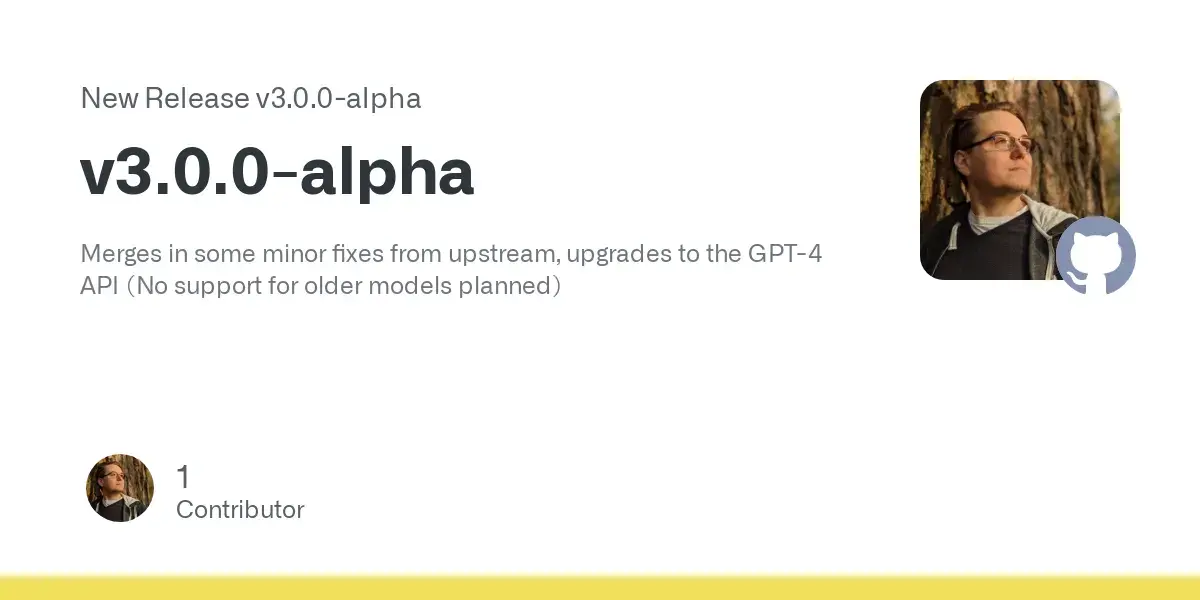
Hi All,
For those of you using FoundryVTT, here's the latest pre-release of my fork of PepjinMC's FoundryVTT-AI-Description-Generator.
For those who haven't heard of it, it's a neat module that allows users in your FoundryVTT instance to get quick descriptions of characters, items, and actions with a single button click. Initially it only supported the D&D system, but my fork extends it to work with any system, provided you know the mappings.
For D&D mappings see the settings on my merge-back branch - https://github.com/th3raid0r/FoundryVTT-AI-Description-Generator/blob/dnd-mergeback/scripts/settings.js
For other mappings, you'll likely need to poke around the data yourself and update things manually. If you do this, please send me your system and mappings so I can begin to create a library for less technical folks.
Hope it's useful to some GM's out there! I use it almost every session!
- https:// www.reuters.com /world/china/us-sino-tensions-help-spawn-china-card-game-craze-2023-08-28/

The game in question is Guandan, where you and your teammate try to make poker hands to discard your cards before the opposing pair does, which lets you level up. Teams can only win the entire match by reaching level A while avoiding having the player who discards all cards last.
The game looks interesting, has anyone played?


